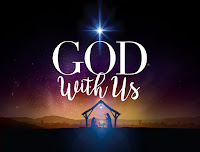The central message of the gospels is not the teaching of Jesus, not the ministry of Jesus, but Jesus himself. For this purpose, as John Stott pointed out, the four gospels portray Jesus in four dimensions: its length, depth, breadth and height.[1] Matthew reveals its length. He starts with Jesus’ genealogy, proving that He is the One – the Messiah, King of the Jews. Mark emphasizes its depth. He depicts the Suffering Servant who humbled himself by becoming obedient to the point of death. Luke reveals its breadth. For him, Jesus is the Savior of the world who sees, loves, and reaches out to all people. Then now, John reveals its height. Jesus is the Son of God, the Word made flesh. As we explore the fourth gospel together, let us join the apostle Paul in his prayer in Ephesians 3:18-19:
I pray that you may have the power to comprehend, with all the saints, what is the breadth and length and height and depth, and to know the love of Christ that surpasses knowledge, so that you may be filled with all the fullness of God.
Though it would be impossible to describe Jesus with one word, the apostle John chooses one summarizing title for Jesus: the “Word.” From the very beginning John declares the truth that Jesus is the Word, who is the very nature of God: “In the beginning was the Word, and the Word was with God, and the Word was God” (v. 1). Jesus is eternally God. And he is eternally Creator: “All things came into being through him, and without him not one thing came into being” (v. 3). Then, John reaches to verse 14, which is one of the most important verses in the Bible: “And the Word became flesh and lived among us, and we have seen his glory, the glory as of a father’s only son, full of grace and truth.” This verse proclaims two eternal truths about who Jesus is. We will explore them one by one.
Jesus Became Human
First, Jesus Became Human. “The Word became flesh and lived among us.” Incarnation. This great mystery of the incarnation is the core of the Christian message, and a stumbling block to many. Jesus is not just a good man, or wonderful teacher. Instead, Jesus is the Son of God, who became one of us. For our better understanding, let me share the story of Mother Antonia. Tijuana’s notorious La Mesa prison contains six thousand of Mexico’s worst criminals. Drug lords and murderers ferment with anger behind bars and fences, but when the tiny figure of an eighty-year-old nun, Mother Antonia, appears, the men are transformed. “Mamá, mamá!” they shout as they reach their hands through the fence to touch her. “How are you, my sons?” she replies. In September 2008 a riot broke out in the prison when she was not there. The prisoners had taken hostages, fires had been started, and bullets were flying everywhere. The 82-year-old Mother Antonia pleaded with the police, “Let me go in. I love the men there.” Finally, they let her enter. She found the leader and begged him to end the riot, saying, “It’s not right that you’re locked up here, hungry and thirsty. We can take care of those things, but this isn’t the way to do it. I will help you make it better. But first you have to give me the guns. I beg you to put down your weapons.” The leader replied, “Mother, as soon as we heard your voice we dropped the guns out of the window.” How can that be? The answer is this: Mother Antonia voluntarily took up residence at La Mesa. She has lived in the tiny cell for more than thirty years alongside her inmates. She became one of them. She lived among them. She did abide.
That’s what God did for us. Jesus Christ our Savior really took human nature on Him and lived among us for more than 30 years in order to save us. Eugene Peterson translates John 1:14 this way: “The Word became flesh and blood, and moved into the neighborhood.” Like ourselves, Jesus was born of a woman. Like ourselves, he grew from infancy to boyhood, and from boyhood to manhood. Like ourselves, he hungered, thirsted, was wearied, wept, felt pain. He was tempted, really suffered and shed his blood, really died, really buried, really rose again, and really ascended into heaven! The Bible says, “Because he himself was tested by what he suffered, he is able to help those who are being tested” (Heb 2:18). Jesus, the Son of God, became one of us and lived among us.
Jesus Revealed His Glory
Secondly, Jesus revealed his glory. John, in his gospel, by the Holy Spirit, carefully chose and recorded 7 “signs” or “miracles” to reveal Jesus’ identity – his glory. Sign 1: Jesus turned water (symbol of the old order) into wine (arrival of God’s kingdom). By this, Jesus has introduced a new beginning. Signs 2 and 3: Jesus performed two healing miracles, as a sign that Jesus is life-giver. Sign 4: Jesus fed 5,000 people with five barley loaves and two fish. It’s a sign that Jesus is the bread of life. Sign 5: Jesus walked on water. He controls the powers of nature. The whole creation remembers the voice of their Creator and listens to him. Sign 6: Jesus gave sight to a man born blind, as a sign that he is the light of the world. And finally, sign 7: Jesus raised Lazarus from the dead. By this, Jesus claims to be the resurrection and the life.
All these seven signs point to one greater truth: Jesus is the Son of God, who became human. Jesus is fully God and fully human. At the end of his gospel, the apostle John tells us why he recorded these signs in this way:
Now Jesus did many other signs in the presence of his disciples, which are not written in this book. But these are written so that you may come to believe that Jesus is the Messiah, the Son of God, and that through believing you may have life in his name (20:30-31).
That’s the purpose of the signs. That’s the purpose of John’s gospel. John’s purpose is to witness to Christ Jesus by recording his signs, that we may believe in him and have life. Signs/miracles would lead to faith, and faith to life.
The Christmas Candle
Recently, I had a chance to watch the film, titled the Christmas Candle, a story written by Max Lucado. In the fictional village of Gladbury, every twenty-five years an angel visits the candlemaker and bestows a miracle upon whomever lights the Christmas Candle. The whole town believes in the candle except the new pastor, Rev. David Richmond. He tries to convince the town folk to believe in God and not candle miracles. The preacher wants people to pray to God and do good works, and not seek hope and change in a candle. Here in this story the Christmas Candle is a symbol of God’s miracles and signs. But Pastor Richmond doesn’t believe in miracles and signs. And there is a reason for this. Sometime in the past he desperately prayed and asked for God’s miracles when his wife and child were suffering from consumption. But nothing happened. Both of them died. Since then, he doesn’t believe in miracles. But as he ministers to his parishioners, he begins to see God’s miracles in the lives of those who light the candles and pray one by one: the speech-impaired boy can talk, a man got a job, a woman's debts were forgiven, a man's beloved cat is saved, the woman is engaged and the blind man could see just before he died. At the end, even the minister's faith is restored in miracles. Signs and miracles would lead to faith, and faith to life.
Jesus, the Son of God, became human and revealed his glory for us to see and believe and have life. When Jesus revealed his glory, there were two different responses: Some (the world) rejected, and some received. “He came to what was his own, and his own people did not accept him. But to all who received him, who believed in his name, he gave power to become children of God” (vv. 11-12).
Jesus is the Light. In verse 5 John testifies, “The light shines in the darkness, and the darkness did not overcome it” (v. 5). Here the Greek word phaino translated as “shines” is literally “shines on” or “continually shines.” 2,000 years ago our spiritual ancestors – wise men and shepherds – saw the light, and they came to the light. The light of Christ, still and continually, shines today. The signs of Christ still shine brightly among us. Christ continually shines, continually enlightens, continually penetrates our hearts, our minds, and our conscience through his powerful word and signs. So, come, believe, and have life! Amen.
--------
[1] John Stott, The Incomparable Christ (Kindle Locations 597-604). InterVarsity Press. Kindle Edition.








